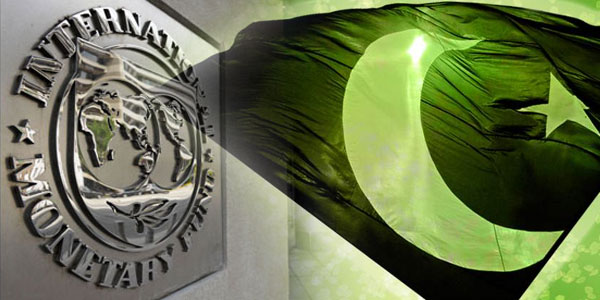ISLAMABAD: Keeping in view the estimated impact of Covid-19, the International Monetary Fund (IMF) on Wednesday lowered Pakistan growth forecast for FY21 by half, at 1pc.
The IMF had earlier estimated Pakistan’s GDP at 1.5pc for the ongoing fiscal year (FY20) and 2pc for FY21.
On Wednesday, the fund revised its forecast for the current fiscal to -0.4pc.
As per the IMF, global growth was now projected at –4.9pc in 2020, 1.9 percentage points below its April 2020 World Economic Outlook forecast. Consumption growth, in particular, has been downgraded for most economies, reflecting the larger-than-anticipated disruption to domestic activity.
The projections of weaker private consumption reflect a combination of a large adverse aggregate demand shock from social distancing and lockdowns, as well as a rise in precautionary savings. Moreover, investment was expected to be subdued as firms defer capital expenditures amid high uncertainty.
In the baseline, global activity is expected to trough in the second quarter of 2020, recovering thereafter. In 2021, growth is projected to strengthen to 5.4pc, 0.4 percentage point lower than the April forecast. Consumption is projected to strengthen gradually next year, and investment is also expected to firm up, but to remain subdued.
The IMF said there was still pervasive uncertainty around this forecast that depends on the depth of the contraction in the second quarter of 2020 (for which complete data are not yet available) as well as the magnitude and persistence of the adverse shock.
For economies struggling to control infection rates, a lengthier lockdown will inflict an additional toll on activity. Moreover, the forecast assumes that financial conditions—which have eased following the release of the April 2020 WEO—will remain broadly at current levels. Alternative outcomes to those in the baseline are clearly possible, and not just because of how the pandemic is evolving.
Data releases since April suggest even deeper downturns than previously projected for several economies. The pandemic has worsened in many countries and leveled off in others. It said the pandemic rapidly intensified in a number of emerging markets and developing economies, necessitating stringent lockdowns and resulting in even larger disruptions to activity than forecast. In others, recorded infections and mortality have instead been more modest on a per capita basis, although limited testing implies considerable uncertainty about the path of the pandemic.
In many advanced economies, the pace of new infections and hospital intensive care occupancy rates have declined thanks to weeks of lockdowns and voluntary distancing. It said the deep downturn was synchronized as first-quarter GDP was generally worse than expected – the few exceptions were Chile, China, India, Malaysia, and Thailand, among emerging markets, and Australia, Germany, and Japan, among advanced economies. High-frequency indicators point to a more severe contraction in the second quarter, except in China, where most of the country had reopened by early April.
The Fund said the strong multilateral cooperation remained essential on multiple fronts. Liquidity assistance was urgently needed for countries confronting health crises and external funding shortfalls, including through debt relief and financing through the global financial safety net.




